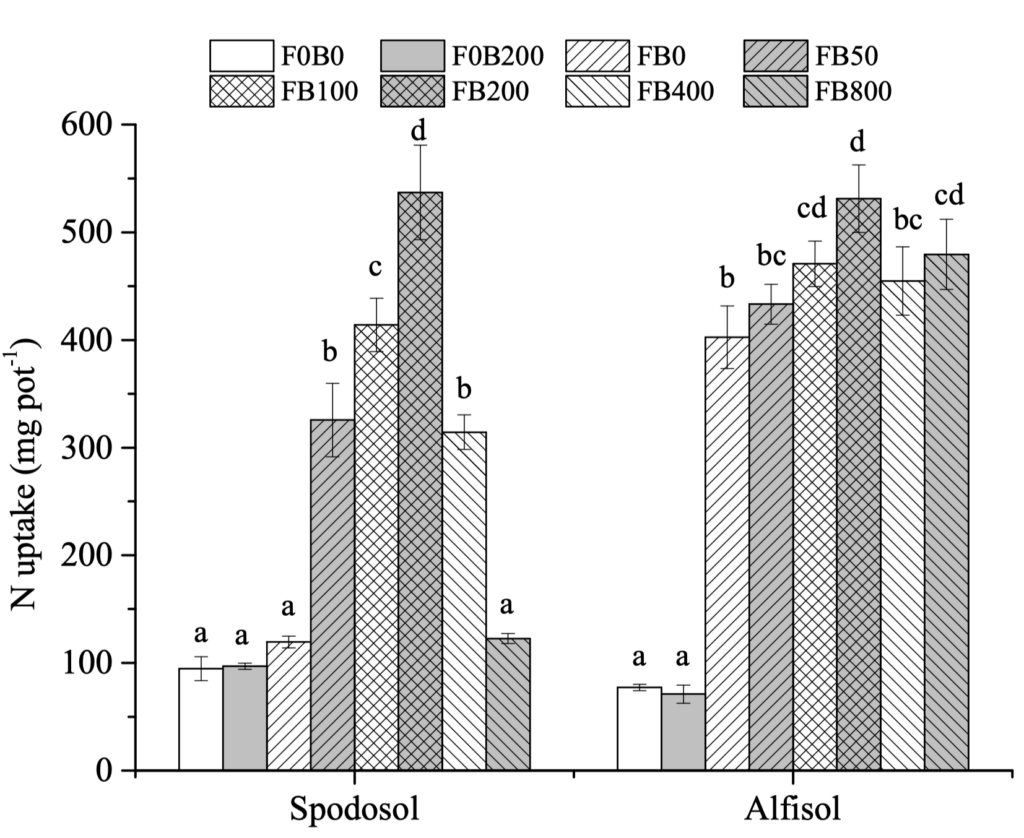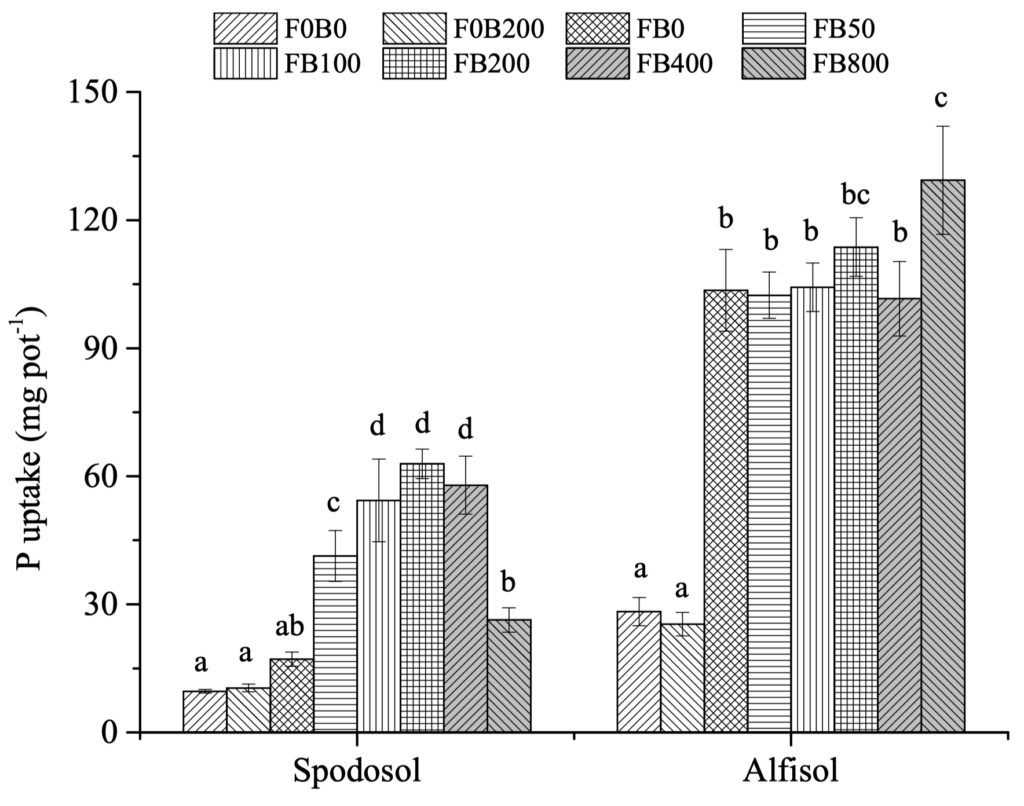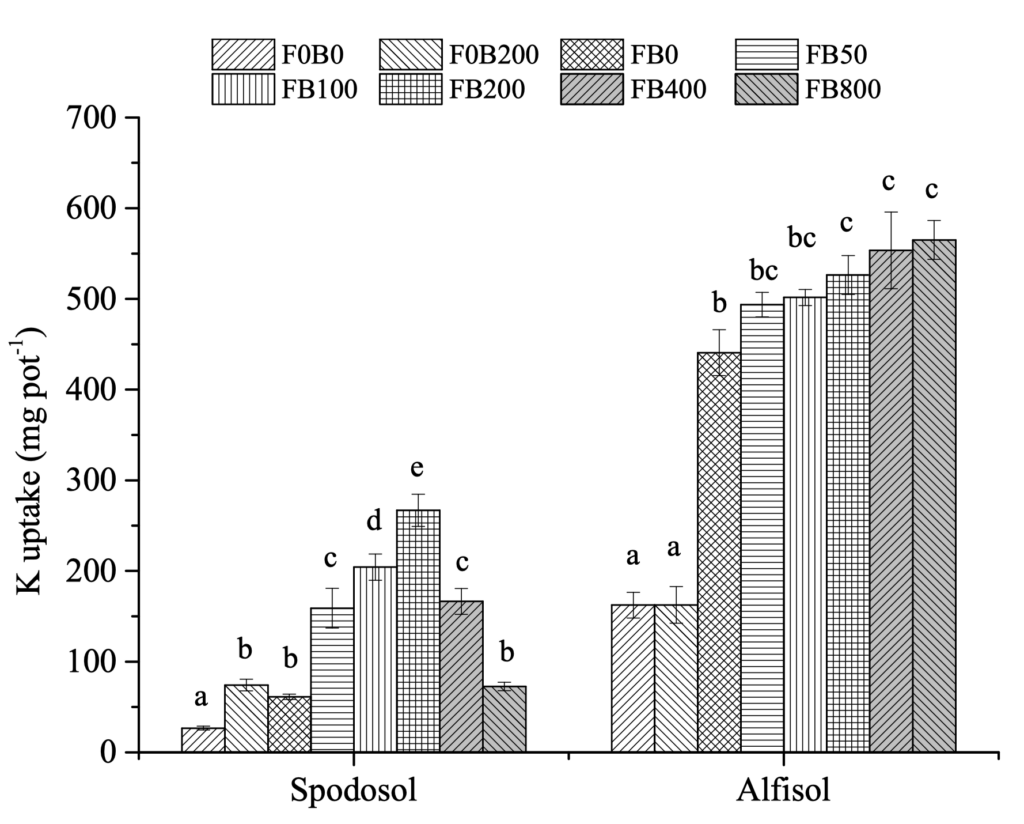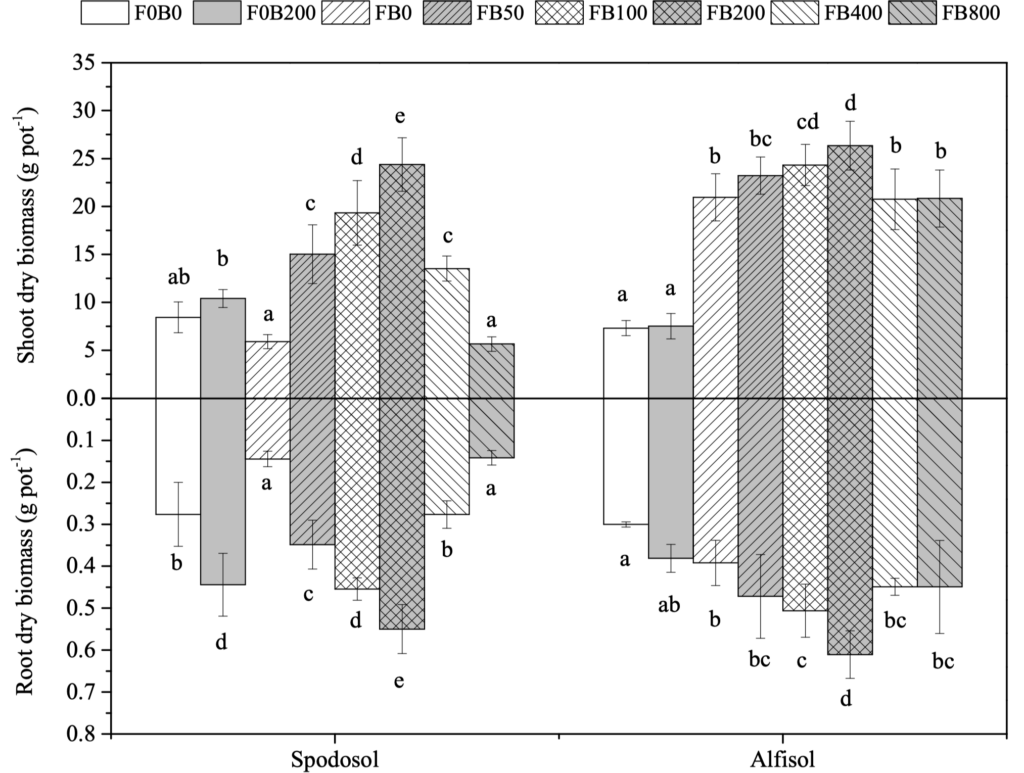Vulpes is happy to share that our collaborators at the University of Florida, led by Professor He, have recently published their greenhouse research data using our Carbon Black Acid to stimulate corn’s nutrient uptake and growth.
The publication is titled Use of Carbon Nanoparticles to Improve Soil Fertility, Crop Growth and Nutrient Uptake by Corn (Zea mays L.) and demonstrates incredible nutrient uptake improvements. The current data is obtained by mixing various dosages of our Carbon Black Acid into two soil types. The soil types used in the research are Spodosol and Alfisol, which are respectively a kind of sandy soil and a kind of high-clay soil. In the ensuing graphs, F0B0 refers to no fertilization and no treatment; F0B200 refers no fertilization and 200ppm product treatment; FB0-FB800 refer to full fertilization and 0-800ppm product treatment, out of which FB0 is the standard control.
First, in terms of nitrogen uptake, with the optimal product dosage at 200ppm, the team is able to demonstrate up to 349% of nitrogen uptake improvement.

Second, in terms of phosphorus uptake, with the optimal product dosage at 200ppm, the team is able to demonstrate up to 267% of phosphorus uptake improvement.

Third, in terms of potassium uptake, with the optimal product dosage at 200ppm, the team is able to demonstrate up to 178% of potassium uptake improvement.

The nutrient uptake improvements are accompanied by significant improvements in plant biomass. Shoot biomass grew by up to 313% and root biomass grew by up to 281%.

The results are also accompanied by improved plant height and reduced leftover of nutrients in the soil. The research is a critical step towards showing that Carbon Black Acid is an effective carrier of nutrients and can massively improve plant nutrient uptake and growth. In addition, better nutrient uptake translates into possibly reduced cost for farmers and reduced environmental impact of nutrient loss to water streams.
That said, the published paper represents only early data from our greenhouse research. We have already replicated the results in field trials across more crops. Given the process of publication, we cannot wait to share more information with you all!
